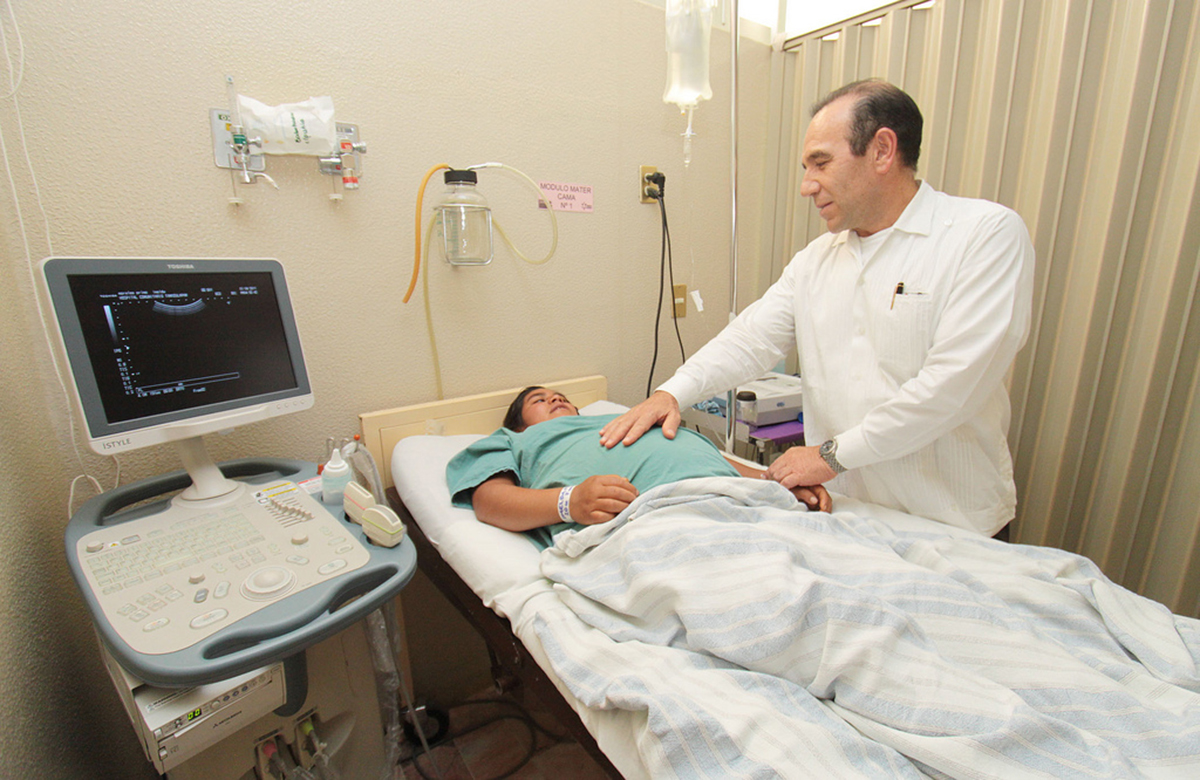"Suffer" is a word that doctors just don't use. Medical journals even instruct authors not to refer to patients who "suffer" a disease, Writers are told to say that patients "have" a disease.
The suffering inflicted on patients, however, is not always just their health conditions. Sometimes health treatment can be just as bad. It can take several weeks to see a primary health provider, and several months to see a specialist. If the doctor cancels your appointment, you are paid nothing. If you cancel your appointment less than 24 hours before you are expected, you may have to pay a fee of $25 to $100.

Insurance companies often require preapproval of visits and services anywhere but the primary care provider's office. They can "forget" that you had approvals and send you a bill anyway. Medications don't work the same way for every patient, and it's not unusual at all to pick up a nosocomial (healthcare-associated) infection in a hospital or clinic. The Centers for Disease Control report that one any given day, one in 25 hospital patients in the United States has an infection they did not have before they entered hospital care. In the US, 722 thousand people get infections in hospitals every year, and 72 thousand people die of them. You go into the hospital to get well, and it kills you.
My Own Experience With "Medical Suffering"
I myself recently had to replace my primary care provider. For over a year, I had been putting up with nurses aides who did not speak enough English even to be polite, much less to understand complex medical issues, or understand what I was telling them about my reasons for the visit. It didn't make any difference whether I spoke to them in English or in their primary lanagage, Spanish. Every single visit (there were 11) the bill for my care had been sent to the wrong billing department with the insurance company. My doctor only got paid after I asked my insurance company to pay him, sometimes two or three times. His office never expressed any appreciation for my help.
After going to this doctor for about a year, I had a mild heart attack, and needed to let my doctor know that I was in the hospital to get insurance approvals. I called and was hung up on. My insurance company's care coordinator called and was hung up on. When both the insurance company and I finally got through, several days later, after I was in the hospital, we were botrh informed "It was your fault. We were here in the breakroom with the phones and intercom turned off." I had a follow-up appointment with my doctor, and no one was at the front desk. Patients kept coming in, with no one meeting us. I left a note for my doctor to call me when he was ready to see patients. Three hours after my scheduled appointment, the nurse called and said, "It was your fault. You could have (jumped over the counter and looked for) the break room."
I fired my doctor.That meant I had to get medical care in an emergency room that kept me waiting for nine hours, at which point I gave up. Then I found a responsible doctor who has a reputation for keeping appointments. After eighteen months of frustration, I found a professionally oriented medical practice.
READ Does Your Doctor Care More About Drug Company Payoffs Than About You?
Do Doctors Really Care?
My primary care provider's practice was staffed by a hospital that provided him with the nurses fronm hell. He's not a bad doctor. He just had lousy staff he has done nothing about. However, many other doctors recognize the importance of treating patients like people.
How Doctors Are Beginning To Improve The Patient Experience
Not every doctor is insensitive to the suffering of patients inflicted by the healthcare system itself. Doctors have come to realize that long waits, inadequate explanations, failure to listen to patient concerns (especially when patients have conditions that are treated by two different specialists), and injuries are detrimental to desirable outcomes.
Dr Kenneth Sands, the chief quality officer at Harvard’s Beth Israel Deaconess Medical Center in Boston, notes additional concerns, such as falls, medication errors, and the previously mentioned hospital-acquired infections.

Then Dr Sands took the unusual step of asking the hospital's patients what was going wrong:
- Communications. Doctors don't always think before they speak. "Oh, it looks like you have cancer," is not really the kind of comment patients want their doctors to make off the cuff.
- Theft. Patients can't wear jewelry into surgery or for many diagnostic procedures. Losing a prized possession like a wedding ring is very upsetting to anyone, especialy to someone who is already sick.
- Privacy. If only a flimsy cloth curtain separates you from the patient in the next bed, this is not the time you want your doctor commenting on your sex life, or your bleeding hemorrhoids or your mental health condition.
Possibly securing himself a nomination for sainthood, Dr. Michael Bennick, medical director for patient experience at Yale-New Haven Hospital, noted that the Medicare hospital satisfaction survey has a question "Was your room quiet?" He took this concern a step further and:
- Directed nursing staff not to wake patients in the middle of the night to take vital signs (blood pressure, temperature, pulse, and oxygen saturation of the blood).
- Changed medication orders so that three-fourths of medications were given before bedtime and the remaining medications were given the next morning.
- Changed rounds so that blood did not have to be drawn at 3 or 4 o'clock in the morning just so doctors could have test results before they made their rounds in the early morning.
Dr. Bennick made an impression on doctors in training at his prestigious hospital. As he told the New York Times, "I told the resident doctors in training: ‘If you are waking patients at 4 in the morning for a blood test, there obviously is a clinical need. So I want to be woken, too, so I can find out what it is.’ ” None of the residents called him in the middle of the night.
The best part about these changes from the perspective of hospital management was that they greatly improve patient outcomes and patient satisfaction and they don't cost a cent. The worst part about these changes fron the perspective of a hospital patient is that many hospitals resist the changes that make their stays comfortable.
What Can A Patient Do?
- Be polite, but let your hospital know when noise keeps you awake at night. If the staff are unusually inattentive, you might be other than polite but still not causing them to call security.
- Be sure to fill out any satisfaction surveys you are given. Hospitals don't always respond to the results, but when they get a series of low rankings they often start to make changes.
- Don't be hesitant to write letters to your hospital about your care. Typically the person you would want to contact is the hospital risk manager. If the treatment you received was outrageously bad, you may want to write a factual, polite, and concise complaint to the Joint Commission on Hospital Care (JCHA). They take complaints by email, although you will need to provide them with your name, Social Security number, and date of birth to discuss the particulars of your case with the hospital.
Ultimately, you want to be treated by a doctor who wants to treat you the way he or she would like to be treated. When you find those doctors, stay with them. Let them know you appreciate your care, but insist that your doctor and your hospital do not add to your suffering.
- Gina Kolata. Doctors Strive to Do Less Harm by Inattentive Care. New York Times. 17 February 2015.
- HAI Prevalence Survey, Centers for Disease Control, http://www.cdc.gov/HAI/surveillance/index.html. Accessed 9 May 2015:
- Photo courtesy of ilmicrofono.oggiono via Flickr: www.flickr.com/photos/115089924@N02/16070083419
- Photo courtesy of ilmicrofono.oggiono via Flickr: www.flickr.com/photos/115089924@N02/16070083419
- Photo courtesy of German Tenorio via Flickr: www.flickr.com/photos/germantenorio/8600730169
- http://www.medscape.org/viewarticle/574813_4 (Registration may be required.)
- well.blogs.nytimes.com/2012/08/02/the-clatter-of-the-hospital-room/


Your thoughts on this